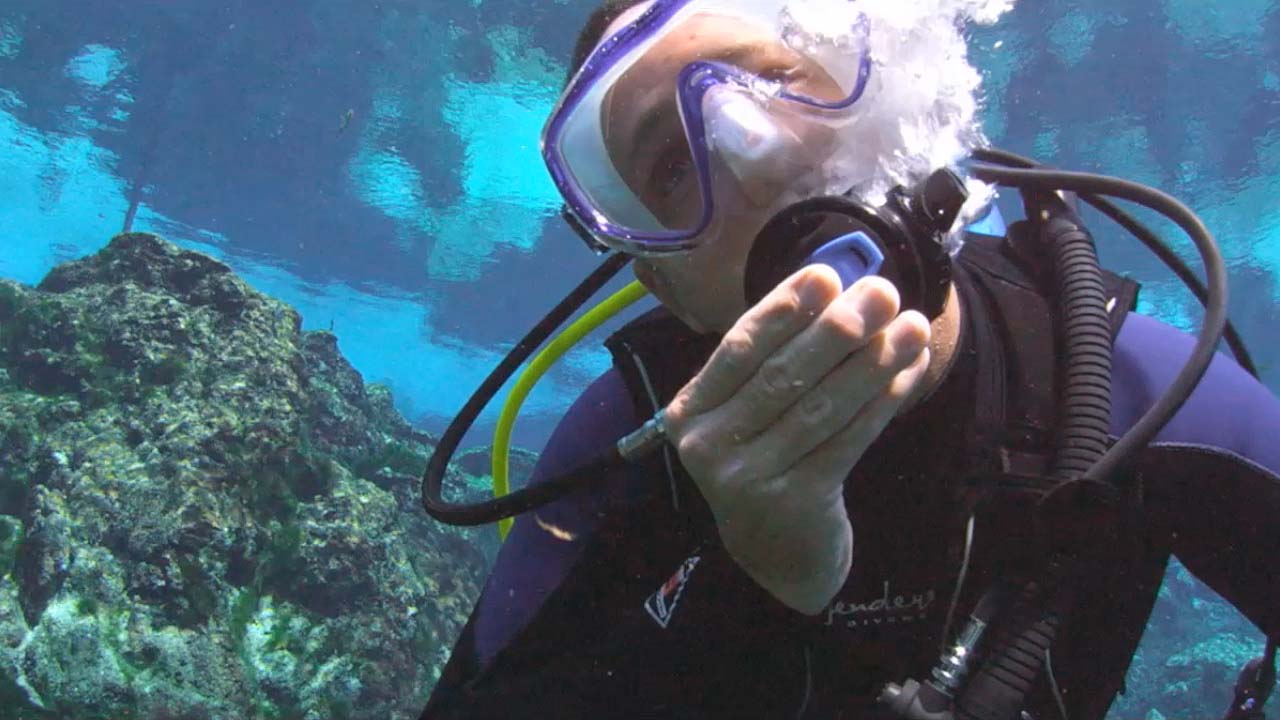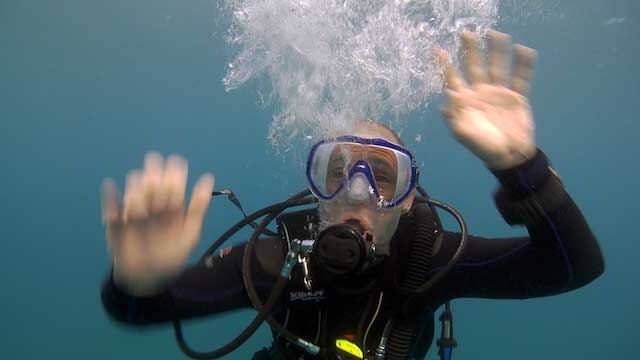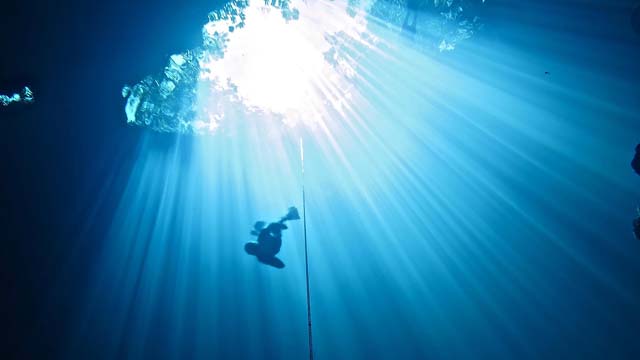Breathing and Shallow Water Blackout

In this section, we discuss:
- Factors That Affect Breathing Under Water
- The Reality of Shallow Water Blackout
- Avoiding Shallow Water Blackout
- What factors negatively impact your ability to breathe while scuba diving?
- What are the causes and prevention of Shallow Water Blackout?
Factors That Affect Breathing Under Water
A number of factors can negatively impact your ability to breathe while scuba diving. These include:
- Breathing resistance caused by a faulty regulator
- Overexertion
- Hyperventilation
- Hypercapnia (Carbon Dioxide Retention)
- Carbon Monoxide Toxicity
- Oxygen Toxicity
Some of the factors are typically part of a chain of events. For instance, if your regulator is not tuned properly and you consequently experience some breathing resistance. This can lead to hyperventilation as you work harder to breathe which can eventually lead to hypercapnia or carbon dioxide retention. Or you may become overexerted on a dive, begin to hyperventilate which can again lead to hypercapnia.
Some individual factors alone, such as oxygen toxicity and carbon monoxide toxicity, can impact your ability to breathe.

The key is that these factors are preventable. Have your regulator serviced at least once a year. If you overexert yourself underwater, stop and regain control of your breathing. Make sure you breathe slowly and deeply at all times to reduce carbon dioxide retention. Have your tanks filled at a facility that has its air regularly tested for purity to prevent carbon monoxide toxicity. When using Nitrox, make sure you analyze your tank, stay within a limiting PO2 of 1.4 ATA or less and don’t exceed the Maximum Operating Depth (MOD) of your mix.
Shallow Water Blackout
Free diving involves breath holding. Divers often try to maximize their time underwater on a free dive by voluntarily hyperventilating prior to diving in order to lower the level of carbon dioxide in the body. During the dive, it takes time for the carbon dioxide levels to rise back to normal.

At the same time, your body is using up all of the stored oxygen, which causes the oxygen partial pressure to fall below the level your body needs to stay conscious. If you lose consciousness, you will have experienced what is called a shallow water blackout.
The common misconception regarding shallow water blackout is that a low blood oxygen level directly causes a blackout when in reality, it is a low blood carbon dioxide level which fails to trigger the breathing reflex after the stored oxygen has been depleted. The demand to breathe is signaled by the respiratory center responding to the increased carbon dioxide levels and not low oxygen levels.
Key Points to Remember
- The following factors can negatively impact your ability to breathe while scuba diving:
- Breathing resistance caused by a faulty regulator
- Overexertion
- Hyperventilation
- Hypercapnia (Carbon Dioxide Retention)
- Carbon Monoxide Toxicity
- Oxygen Toxicity
- A common misconception regarding shallow water blackout is that a low blood oxygen level directly causes a blackout when in reality, it is a low blood carbon dioxide level which fails to trigger the breathing reflex after the stored oxygen has been depleted.
Learn More on Wikipedia
